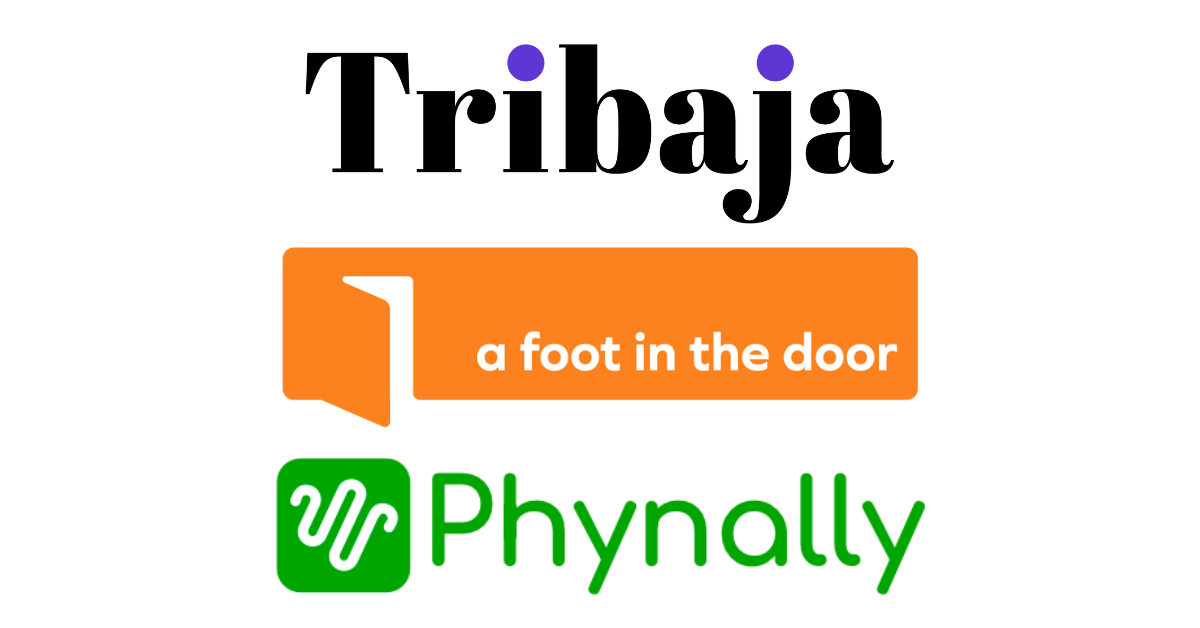By: Alesia Bani
KEY INSIGHTS:
- Leading search engines like Indeed, LinkedIn and Glassdoor dominate the digital hiring market, but Black founders say there is still space for independent employment platforms.
- Hiring platform Tribaja focuses on diverse tech talent, A Foot In The Door is for job seekers with less than five years of experience and Phynally is for professionals that use cannabis.
- Even with tech layoffs and a looming recession, 263,000 jobs were added in November and the unemployment rate remains unchanged from October at 3.7 percent.
Three Black-founded hiring platforms launched in the last couple of years — Tribaja, A Foot In The Door and Phynally — have found that job seekers and employers are interested in using independent, niche job search engines to tap into specific pools of talent.
They are competing against larger platforms like Indeed, which boasts over 300 million unique visitors to the site every month, and LinkedIn, which has become a place of choice for recruiters — 101 job applications are submitted every second on LinkedIn and eight people are hired every minute.
Beyond connecting job seekers and employers, each founder built their platform with the aim to solve a problem in the hiring process: inclusion in tech, entering a new industry and finding employment as a cannabis user.
Tribaja
Shannon Morales developed Tribaja, a DEI-focused tech talent recruitment platform, after a personal experience with bias in the workplace. Morales believes job seekers are looking for companies that are transparent about work culture, inclusivity and salary. As such, Tribaja vets companies to ensure they “practice what they preach.”
Companies have a harder time recruiting diverse talent, according to Morales. Her targeted network of talent allows recruiters to reach people underrepresented in tech faster and easier. Employer partners include information explaining why they are doing direct outreach to diverse communities instead of posting on larger platforms within their Tribaja profile.
According to a Glassdoor survey, 76 percent of employees and job seekers report a diverse workforce is an important factor when evaluating companies and job offers, and nearly half of Black (47 percent) and Hispanic (49 percent) job seekers and employees have quit a job after witnessing or experiencing discrimination in the workplace.
One of the biggest challenges job seekers face is navigating the job search and feeling confident in transitioning into the tech space, Morales said. Tribaja provides recommendations for upskilling and affordable training programs, and this year has facilitated over 2,000 interviews with tech companies in the U.S. thus far with plans to expand to Latin America.
A Foot In The Door
Even with a plethora of hiring platforms, for some Black technologists, breaking into the industry has been a challenge.
Software engineer and co-founder of Black Tech Philly Ian Kimble spent two years freelancing after finishing a coding boot camp before he landed his first tech role at Change Machine via LinkedIn.
“I kept doing what I had already been doing, which was applying every day to as many engineering roles as possible on a variety of different job boards, practicing my interviewing skills, working on independent projects and volunteering myself for contracted or even unpaid opportunities that could advance my career,” Kimble told The Plug. “At some point, someone from Change Machine noticed what I had been doing on LinkedIn and offered me the chance to interview.”
He said that other job platforms often cater to technologists with years of professional experience.
“Many aspiring Black developers seeking their first role aren’t aware that these niche job boards exist, and if they are, they don’t always get the same value as they would with the larger boards such as Linkedin where you can one-click apply and even reach out to the recruiter directly,” he said. LinkedIn has an “Easy Apply” feature where job seekers can use existing information stored on the platform to apply for a job.
Kimble said other Black engineers in his network echoed the same frustration with the “experience gap” in landing their first tech role.
“Someone looking for their first role isn’t going to get any value from any board where most of the job title listing has the words ‘mid-level’ or ‘senior’ in it,” he noted.
Experiences like Kimble’s are why Keith Francis started A Foot In The Door, a job search platform for people with zero to five years of experience. The platform is currently in beta testing and featured jobs do not focus on a specific industry.
“I really didn’t see a space for folks that are trying to enter the marketplace,” Francis told The Plug.
What differentiates the platform from others is a video element, Francis said. Job seekers create a profile on the platform where they can add a 60-second video in addition to a resume. The platform allows employers to request an interview with job seekers and the virtual meeting can be conducted directly on the platform. Shortening the hiring process in this way is “the future of hiring,” Francis said.
“If you look at the hiring process it hasn’t evolved much at all and I think it’s time for a little disruption,” he said. “In this TikTok age, 60 seconds can demonstrate a lot and you can be very creative with that blank space and show what you can do and bring to the table.”
A Foot In The Door is bootstrapped and its revenue model is based on employers paying to have their job listings featured on the platform.
Phynally
Founder Damian Jorden created the job search engine Phynally after his experience of using cannabis for mental health treatment and hearing the stories of other people who fear they cannot be hired at a new job due to cannabis consumption. The platform connects professionals with employers that do not have cannabis pre-employment screening.
“It allows employers to access and pull talented people who were not aware of them,” Jorden told The Plug.
Phynally’s job postings are national and feature companies like La Colombe, Deloitte and Goldman Sachs. Since launching in April 2021, the platform has had over 14,000 users and has made job placements, though Jorden did not disclose how many.
“I’m excited to have more employers come on the site and post jobs because these are regular people that just identify with a medicine,” Jorden said.
In addition to employers paying to be featured on the platform, physicians also subscribe to Phynally to connect with Pennsylvania residents interested in a medical cannabis card. Phynally pre-qualifies residents for prescriptions through a form on its website.
Another niche hiring platform co-led by a Black founder, Climatebase, helps people discover climate jobs and transition into the climate sector. Nearly one million people have used Climatebase to discover and apply to over 45,000 jobs at over 2,500 climate tech companies and environmental nonprofits.
The hiring market amidst the looming recession
The tech industry has already felt the effects of the economic downturn with layoffs at big companies like Meta and Amazon. But according to a recent EY survey, 61 percent of business leaders in the tech industry think a potential recession will have a positive impact on their organization. Ninety percent said they are investing in new talent to remain competitive amid the threat of a recession.
Federal Reserve staff economists forecast the chance of a formal recession in the next year has risen to nearly 50 percent. The United States added 263,000 jobs in November, according to the U.S. Bureau of Labor Statistics, despite the Fed’s recommendation to mitigate inflation by reducing job demand. The unemployment rate remains unchanged at 3.7 percent.
Although some of Tribaja’s employer partners have a hiring freeze, only one has experienced layoffs, which founder Morales said reflects their commitment to retaining diverse talent.
“We’re still hiring. And I think that speaks to those inclusive hiring practices, thinking about what the pipeline looks like and making sure that you’re hiring for the right roles and not just hiring just to be hiring. I think a lot of our companies think about those things more holistically and therefore have strategically thought about times like these,” Morales said.

Alesia Bani
Alesia Bani is a writer and journalist from Philadelphia and The Plug’s Innovation Reporter covering the Black tech ecosystem in Philadelphia. She previously worked for the Institutional Diversity office at her alma mater Temple University and has a background in reporting on identity, DEI and local government.
Contact: alesia@tpinsights.com




